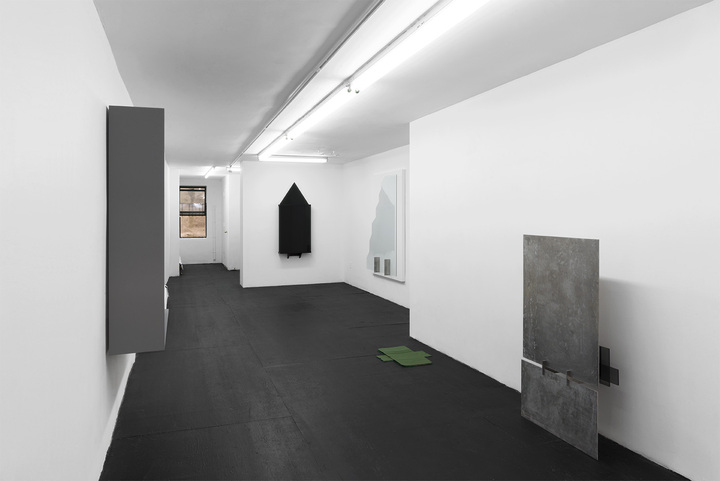
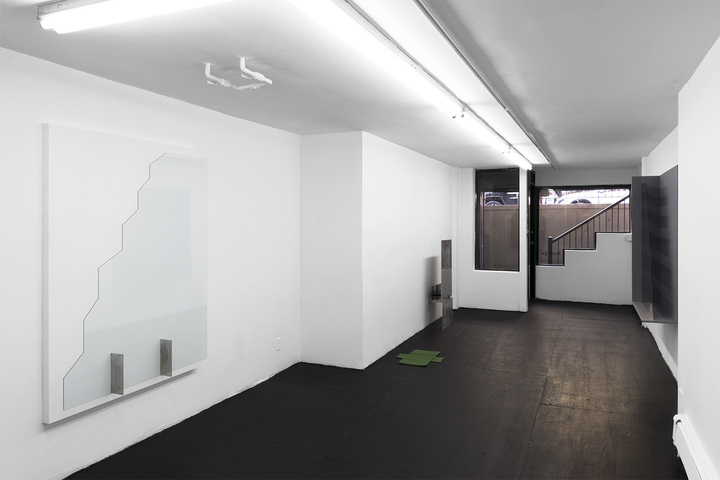
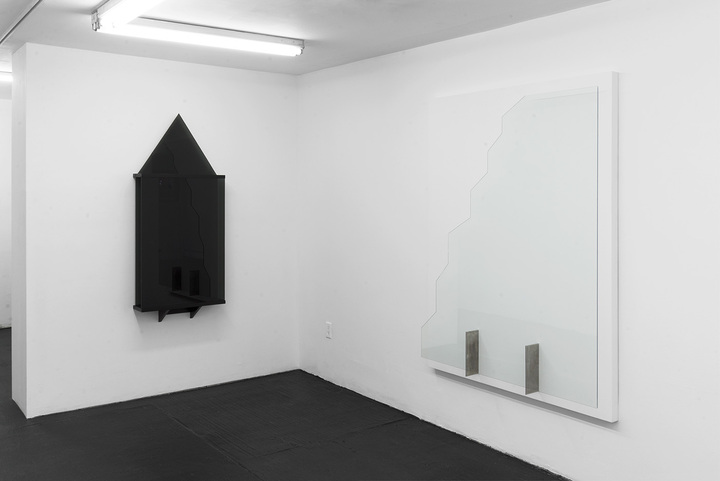

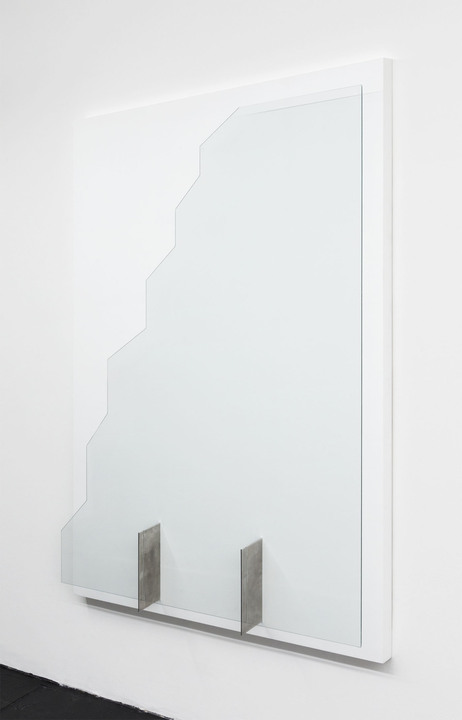
Hunter, 2017
Glass, aluminum, wood
66 x 50 x 6 in (167.6 x 127 x 15.2 cm)
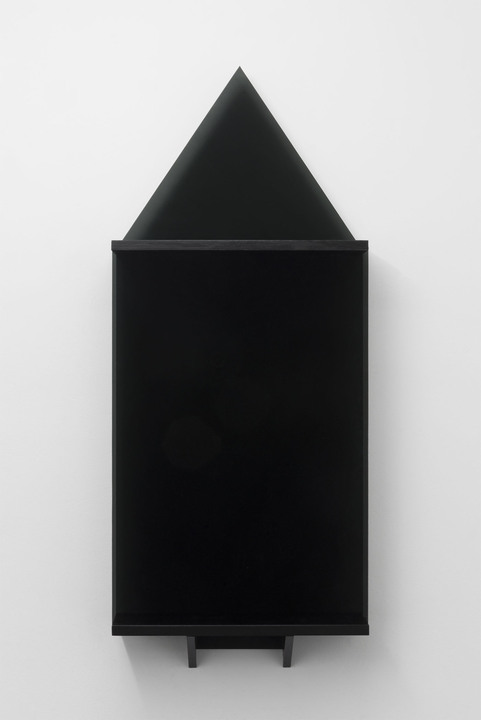

House, 2017
Tinted glass, aluminum, wood
60 x 24.25 x 6.5 in (152.4 x 61.6 x 16.5 cm)


Farmer, 2017
Tinted glass, aluminum, wood
57 x 50.5 x 12.5 in (144.8 x 128.3 x 31.8 cm)
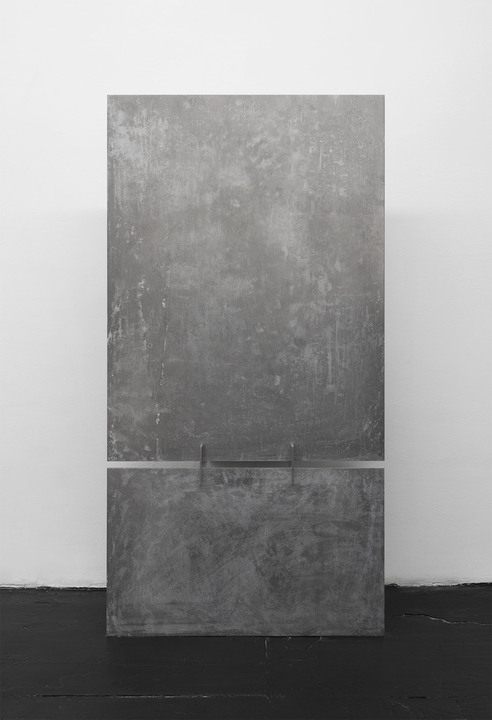
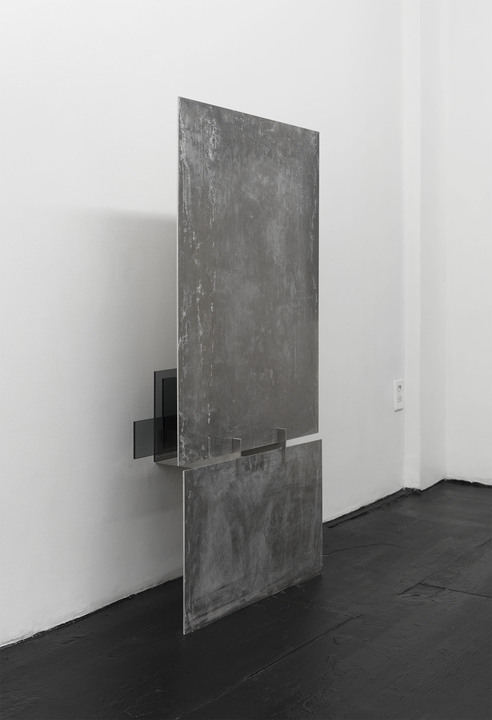
Central Server, 2017
Aluminum, salt, tinted glass, wood
49 x 25 x 10.5 in (124.5 x 63.5 x 26.7 cm)
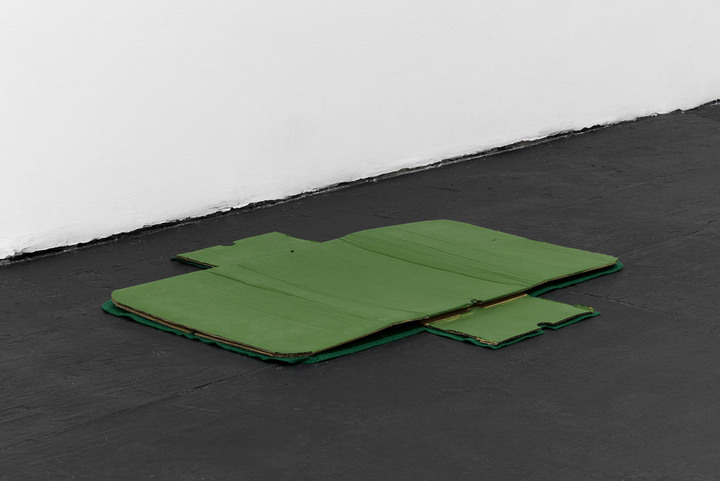
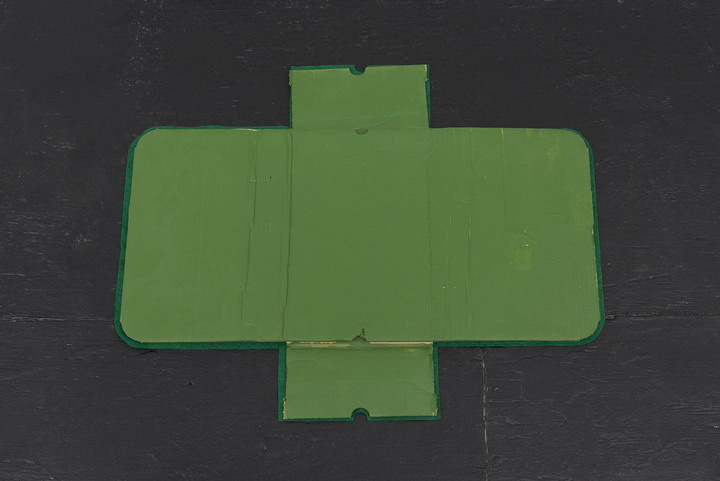
A Free Economy Farmed and Hunted, 2017
Cardboard, felt
20 x 25 x 0.5 in (50.8 x 63.5 x 1.3 cm)
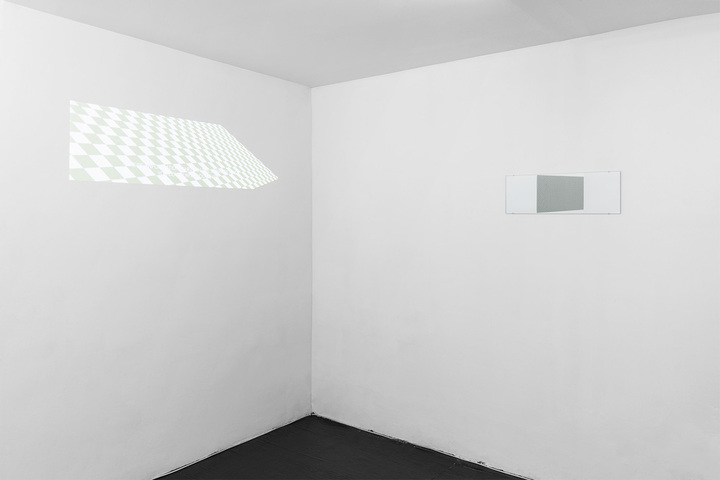
Video, 2017
HD video
1:53 loop
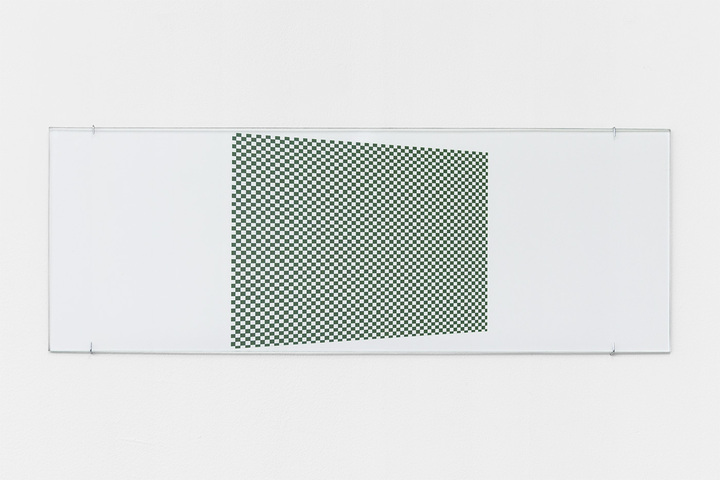
Video Text, 2017
Color print, glass
8.5 x 25 in (21.6 x 63.5 cm)
Elizabeth Orr circles the idea of the anti-phenomenological in relation to a new body of work that uses motifs of the imagined American house and the game of chess to raise the issue of strategic amorality. The claim of phenomenology—one shared with minimalism—is that movement through, over, under, and around objects accomplishes something by virtue of spatial juxtaposition alone and therefore influences perception.
Through a resolutely obscure layering of imagery and tinted glass, Orr’s work reveals nothing but the mechanism of revelation itself. Orr suggests that information—revealed constantly, fluidly, scrolling and pushed—produces its own screen in the name of visibility. The works recognize and reject this politics of clarity, visibility, and frictionless revelation.
Chess originated as game modeled on military forces. It is a game of total information: players have at their disposal all the information concerning their opponents’ positions. It is a game of pure strategy that does not, as the Queen in Orr’s video suggests, tolerate affective or moral attachments. Yet total information makes it a bad metaphor for anything, including the military arms that it represents. In the 19th century, Kriegsspiel (“war game”) was invented as a system for training German and Prussian army officers. It is a variation on chess where players cannot see their opponents’ moves.